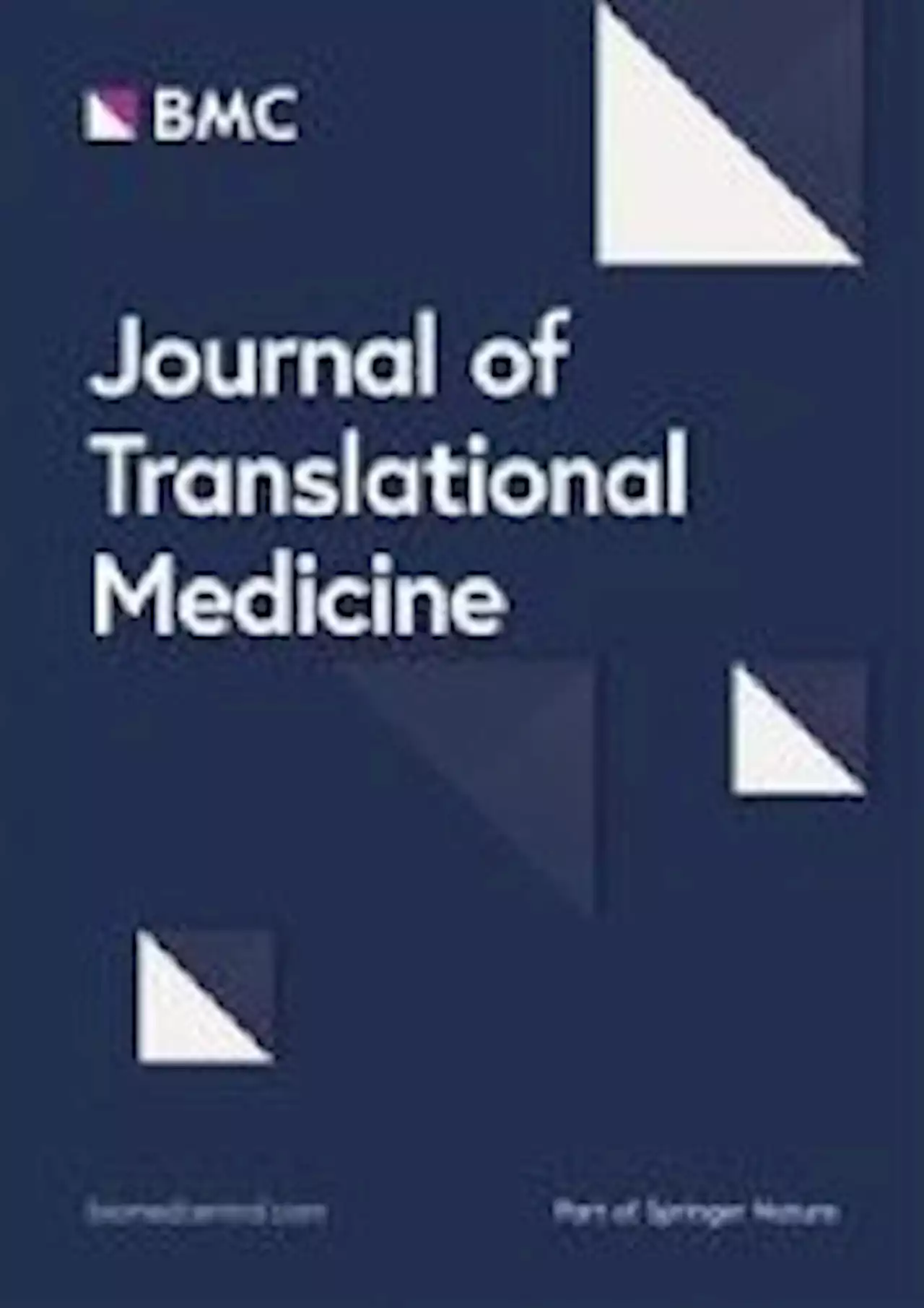Bloodtest could predict who is likely to get longCOVID uclnews
, analyzed proteins in the blood of health care workers infected with SARS-CoV-2, comparing them to samples from health care workers who had not been infected.in the body are stable, but the researchers found a dramatic difference in levels of some of the proteins up to six weeks following infection, suggesting disruption to a number of important biological processes.
The researchers say that if these findings are repeated in a larger, independent group of patients, a test that could predict people's likelihood of developing long COVID could potentially be offered alongside aLead author Dr. Gaby Captur said,"Our study shows that even mild or asymptomatic COVID-19 disrupts the profile of proteins in our blood plasma. This means that even mild COVID-19 affects normal biological processes in a dramatic way, up to at least six weeks after infection.
United States Latest News, United States Headlines
Similar News:You can also read news stories similar to this one that we have collected from other news sources.
 Long-term neuromuscular consequences of SARS-Cov-2 and their similarities with myalgic encephalomyelitis/chronic fatigue syndrome: results of the retrospective CoLGEM study - Journal of Translational MedicineBackground Patients with long-COVID often complain of continuous fatigue, myalgia, sleep problems, cognitive dysfunction, and post-exertional malaise. No data are available on EMG recording of evoked myopotentials (M-waves) or exercise-induced alterations in long-COVID patients, providing evidence of muscle membrane fatigue. Myalgic encephalomyelitis/chronic fatigue syndrome (ME/CFS) develops in more than half of patients after an infectious disease, particularly viral diseases. A large proportion (around 70%) of these patients have neuromuscular disorders with M-wave alterations during and after exercise. Our hypothesis was that M-wave alterations would be also found in long-COVID patients, in association with neuromuscular symptoms, similar to ME/CFS. Methods This retrospective observational ColGEM (Covid LonG Encéphalomyelite Myalgique) study compared 59 patients with long-COVID and 55 ME/CFS patients with a history of severe infection who presented before the COVID pandemic. All of these patients underwent the same protocol consisting of a questionnaire focusing on neural and neuromuscular disorders and M-wave recording in the rectus femoris muscle before, during, and 10 min after a progressive cycling exercise. Maximal handgrip strength (MHGS) and maximal exercise power were also measured. The frequency of symptoms and magnitude of M-wave changes in the two groups were compared using non-parametric and parametric tests. Results The frequency of fatigue, myalgia, sleep problems, cognitive dysfunction, and post-exertional malaise as well as the magnitude of exercise-induced M-wave alterations were the same in the two groups. By contrast, digestive problems were less present in long-COVID. M-wave alterations were greater in ME/CFS patients as in those with long-COVID when the highest muscle strength and highest exercise performance were measured. Conclusions These high clinical and biological similarities between long-COVID and ME/CFS support the hypothesis that S
Long-term neuromuscular consequences of SARS-Cov-2 and their similarities with myalgic encephalomyelitis/chronic fatigue syndrome: results of the retrospective CoLGEM study - Journal of Translational MedicineBackground Patients with long-COVID often complain of continuous fatigue, myalgia, sleep problems, cognitive dysfunction, and post-exertional malaise. No data are available on EMG recording of evoked myopotentials (M-waves) or exercise-induced alterations in long-COVID patients, providing evidence of muscle membrane fatigue. Myalgic encephalomyelitis/chronic fatigue syndrome (ME/CFS) develops in more than half of patients after an infectious disease, particularly viral diseases. A large proportion (around 70%) of these patients have neuromuscular disorders with M-wave alterations during and after exercise. Our hypothesis was that M-wave alterations would be also found in long-COVID patients, in association with neuromuscular symptoms, similar to ME/CFS. Methods This retrospective observational ColGEM (Covid LonG Encéphalomyelite Myalgique) study compared 59 patients with long-COVID and 55 ME/CFS patients with a history of severe infection who presented before the COVID pandemic. All of these patients underwent the same protocol consisting of a questionnaire focusing on neural and neuromuscular disorders and M-wave recording in the rectus femoris muscle before, during, and 10 min after a progressive cycling exercise. Maximal handgrip strength (MHGS) and maximal exercise power were also measured. The frequency of symptoms and magnitude of M-wave changes in the two groups were compared using non-parametric and parametric tests. Results The frequency of fatigue, myalgia, sleep problems, cognitive dysfunction, and post-exertional malaise as well as the magnitude of exercise-induced M-wave alterations were the same in the two groups. By contrast, digestive problems were less present in long-COVID. M-wave alterations were greater in ME/CFS patients as in those with long-COVID when the highest muscle strength and highest exercise performance were measured. Conclusions These high clinical and biological similarities between long-COVID and ME/CFS support the hypothesis that S
Read more »
 Trial tests efficacy and safety of NVX-CoV2373 COVID-19 vaccine among adolescentsIn a recent study posted to the medRxiv* preprint server, researchers in the United States described the safety, efficacy, and immunogenicity of the NVX-CoV2373 vaccine against severe acute respiratory syndrome coronavirus 2 (SARS-CoV-2), tested in PREVENT-19 — a phase 3, randomized, placebo-controlled, observer-blinded trial among 12- to 17-year-old adolescents in the United States (U.S).
Trial tests efficacy and safety of NVX-CoV2373 COVID-19 vaccine among adolescentsIn a recent study posted to the medRxiv* preprint server, researchers in the United States described the safety, efficacy, and immunogenicity of the NVX-CoV2373 vaccine against severe acute respiratory syndrome coronavirus 2 (SARS-CoV-2), tested in PREVENT-19 — a phase 3, randomized, placebo-controlled, observer-blinded trial among 12- to 17-year-old adolescents in the United States (U.S).
Read more »
 Study of 9 million Swedes shows rapidly declining effectiveness of COVID vaccines against OmicronThe findings of a new Swedish study posted to the Preprints with The Lancet* server found that two COVID-19 vaccine doses provided effective long-term protection against infection before Omicron, but less protection against Omicron infection (dropping to 43% by week four and no protection by week 14).
Study of 9 million Swedes shows rapidly declining effectiveness of COVID vaccines against OmicronThe findings of a new Swedish study posted to the Preprints with The Lancet* server found that two COVID-19 vaccine doses provided effective long-term protection against infection before Omicron, but less protection against Omicron infection (dropping to 43% by week four and no protection by week 14).
Read more »
Remdesivir resistance in transplant recipients with persistent COVID-19The medical community currently lacks robust data regarding the incidence, prevalence, and clinical significance of mutations associated with resistance to severe acute respiratory syndrome coronavirus-2 (SARS-CoV-2) therapeutics. This report describes two renal transplant recipient...
Read more »
 Barbados drops all Covid entry rulesThe lifting of Covid entry requirements are expected to boost tourism to the popular Caribbean holiday destination during the winter season
Barbados drops all Covid entry rulesThe lifting of Covid entry requirements are expected to boost tourism to the popular Caribbean holiday destination during the winter season
Read more »
